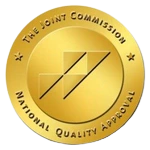Mental health is the cornerstone of our overall well-being, shaping how we think, feel, and connect with the world. For those navigating mental health challenges or addiction, finding a place of understanding, compassion, and effective treatment is essential. Serenity Ranch Recovery stands out as a leading provider of Inpatient Mental Health Treatment in Kentucky, offering a nurturing sanctuary where individuals can heal, grow, and reclaim their lives.

Why Is Mental Health Care Important?
Mental health is the cornerstone of our overall well-being, shaping how we think, feel, and connect with the world. For those navigating mental health challenges or addiction, finding a place of understanding, compassion, and effective treatment is essential. Serenity Ranch Recovery stands out as a leading provider of Inpatient Mental Health Treatment in Kentucky, offering a nurturing sanctuary where individuals can heal, grow, and reclaim their lives.
Why Is Mental Health Care Important?
Mental health care goes beyond treating illnesses; it’s about maintaining overall well-being, and ensuring that individuals lead balanced, fulfilling lives. Understanding the importance of mental health care—and prioritizing therapy and overall wellness—is essential to living a fulfilling life, as mental health is deeply intertwined with our overall quality of life.
The Foundation of Well-Being
Mental health forms the foundation of emotional, psychological, and social wellness. It influences how we manage stress, make decisions, and engage with others. Through mental health therapy for addiction and other mental health interventions, individuals can build the strength to navigate life’s challenges, contribute meaningfully to their communities, and maintain emotional balance.
- Impact on Physical Health
- Influence on Relationships
Enhancing Quality of Life
Investing in Mental Health Treatment empowers individuals to manage stress, build resilience, and pursue goals with confidence. Through therapy, medication, or lifestyle changes, mental health care empowers individuals to live more fulfilling lives.
- Productivity and Professional Success
- Emotional Balance and Fulfillment
How Can We Reduce Stigma About Mental Health?
Raising awareness about mental health reduces stigma, encouraging those struggling to seek help. By fostering open conversations about therapy for mental health struggles, addiction and co-occurring disorders, we create supportive communities that value mental well-being, making it easier for individuals to access care.
-
Early Intervention and Prevention
-
The Role of Inpatient and Outpatient Care
Mental health care is essential for a balanced, fulfilling life, impacting physical health, relationships, productivity, and emotional well-being. By prioritizing mental health care, we can build stronger, healthier communities and improve the quality of life for ourselves and others. Recognizing the importance of mental health care is the first step toward a healthier, happier future.
What Are the Types of Mental Health Disorders?
More than 1 in 5 US adults live with a mental health disorder. Mental health disorders are complex conditions that affect a person’s thinking, feelings, behavior, and mood. These disorders can vary widely in their severity and impact on daily life. Understanding the different types of mental health disorders can help in recognizing the need for treatment and the benefits of seeking help.
Depression
Anxiety Disorders
Bipolar Disorder
Post-Traumatic Stress Disorder (PTSD)
Schizophrenia
Obsessive-Compulsive Disorder (OCD)
Borderline Personality Disorder (BPD)
What Causes Mental Health Disorders?
Genetic Factors
- Hereditary Influences
- Gene-Environment Interaction
Biological Factors
- Brain Chemistry and Structure
- Hormonal Imbalances
- Physical Health Conditions
Environmental Factors
- Traumatic Life Events
- Stressful Life Circumstances
- Substance Abuse
- Social Isolation
Psychological Factors
- Personality Traits
- Early Childhood Experiences
- Coping Mechanisms
The Interplay of Multiple Factors
It’s important to recognize that mental health disorders are rarely caused by a single factor. Instead, they typically result from a complex interplay of genetic, biological, environmental, and psychological factors. For example, a genetic predisposition to depression might be triggered by trauma and worsened by substance use. Therapy for addiction and co-occurring disorders addresses these complexities for comprehensive healing.
In summary, understanding the multifaceted causes of mental health disorders enables early intervention and personalized care. Mental Health Treatment in Kentucky at Serenity Ranch provides the tools and support needed for lasting recovery.
What Are the Common Dual Diagnosis Conditions Treated at Serenity Ranch?
At Serenity Ranch Recovery, we specialize in treating dual diagnosis conditions, addressing both mental health disorders and substance abuse simultaneously. Our integrated approach ensures comprehensive care for individuals facing these complex challenges, promoting lasting recovery through evidence-based therapies and compassionate support.
Alcohol Addiction and Depression
Alcohol addiction often coexists with depression, creating a cycle where each condition exacerbates the other. At Serenity Ranch, we provide targeted therapy to address the emotional pain of depression while helping individuals safely detox from alcohol. Our integrated treatment plans combine cognitive-behavioral therapy (CBT), counseling, and holistic practices to break this cycle, fostering emotional stability and sobriety.
Fentanyl Addiction with Anxiety and Depression
Fentanyl addiction, paired with anxiety and depression, presents significant challenges due to the drug’s potency and the intensity of co-occurring symptoms. Our dual diagnosis program offers medically supervised detox, trauma-informed therapy, and medication management to alleviate anxiety and depression while supporting recovery from fentanyl dependence, empowering individuals to regain control of their lives.
Methamphetamine Addiction and Bipolar Disorder
Methamphetamine addiction can intensify the mood swings of bipolar disorder, complicating recovery. At Serenity Ranch, we combine mood-stabilizing medications, behavioral therapy, and relapse prevention strategies to address both conditions. Our compassionate, structured environment helps patients manage manic and depressive episodes while building the skills needed for sustained sobriety.
Marijuana Addiction with Anxiety and Depression
Marijuana addiction, often used to self-medicate anxiety and depression, can worsen these mental health conditions over time. Our tailored treatment plans include therapy to address underlying emotional triggers, mindfulness practices to reduce anxiety, and structured support to overcome marijuana dependence, helping individuals achieve mental clarity and emotional balance.
Benzodiazepine Addiction and PTSD Anxiety
Benzodiazepine addiction frequently co-occurs with PTSD, as individuals may use these medications to manage anxiety from unresolved trauma. Serenity Ranch offers trauma-focused therapies, alongside safe detox protocols to address both addiction and PTSD symptoms. Our holistic approach promotes healing from trauma while supporting long-term recovery.
Cocaine Addiction and Bipolar Disorder
Cocaine addiction can amplify the highs and lows of bipolar disorder, making stabilization challenging. Our dual diagnosis treatment integrates medication management, individual therapy, and group support to address both cocaine dependence and bipolar symptoms. By fostering emotional regulation and relapse prevention, we help patients build a foundation for lasting recovery.
What Is Inpatient Mental Health Care?
Why Inpatient Care?
Opting for inpatient care can be a challenging decision, but it is often the most effective option for those dealing with complex mental health issues. Inpatient care provides a level of supervision and support that isn’t available in outpatient settings. It also allows individuals to focus entirely on their recovery, free from the distractions and stresses of daily life.
At Serenity Ranch Recovery, we understand the fears and uncertainties that come with seeking inpatient care. Our facility is designed to be a place of comfort and healing. Here, patients can feel safe and supported as they work through their mental health challenges in a structured, therapeutic environment.

Contact Us
What Programs Are Offered at Serenity Ranch Recovery?
Our inpatient mental health treatment in Kentucky provides comprehensive, round-the-clock care for individuals facing severe mental health challenges. Through a carefully structured program that includes individual therapy, group therapy, and holistic modalities, patients receive the support they need to stabilize and begin their journey toward long-term recovery.
Many individuals living with mental health disorders also struggle with substance abuse. Our dual diagnosis treatment program is specifically designed to address addiction and co-occurring disorders at the same time. Using a combination of behavioral therapy for addiction recovery, talk therapy for substance use disorders, evidence-based methods, and holistic practices, we treat the full spectrum of mental, emotional, and physical health—giving patients the best chance for sustainable recovery.
Substance abuse often coexists with mental health disorders, complicating the recovery process. At Serenity Ranch, our detox and rehab programs help individuals safely withdraw from substances while addressing underlying mental health issues.
For those who do not require the intensity of inpatient care, our outpatient programs offer flexibility and ongoing support. These programs are ideal for individuals who have completed inpatient treatment but still need ongoing care to maintain their recovery.
What Services Are Offered at Serenity Ranch Recovery?

Holistic Therapy

Trauma Therapy

12 Steps and Life Skills

Individual Therapy

Family Therapy
How Does Medication Management Work in Mental Health Treatment?
The Role of Medication in Mental Health Treatment
Medication can help to balance chemicals in the brain, reduce symptoms, and make therapy more effective. It is commonly used to treat a wide range of mental health conditions, including depression, anxiety disorders, bipolar disorder, schizophrenia, and more.
Types of Medications Used
- Antidepressants: Treat depression and anxiety by balancing brain chemicals that affect mood and emotions. Common examples include fluoxetine (Prozac) and venlafaxine (Effexor).
- Antipsychotics: Used to treat conditions like schizophrenia or bipolar disorder. Medications like risperidone (Risperdal) and aripiprazole (Abilify) manage symptoms such as delusions, hallucinations or severe mood swings.
- Mood Stabilizers: Help regulate extreme mood shifts, particularly in bipolar disorder. Examples include lithium and valproate (Depakote).
- Anxiolytics and Sedatives: Often prescribed short-term for anxiety or insomnia. These include lorazepam (Ativan) and zolpidem (Ambien).
- Stimulants: Commonly used to treat attention deficit hyperactivity disorder (ADHD) to improve focus and concentration. Examples include methylphenidate (Ritalin) and amphetamine salts (Adderall).
Personalized Medication Management
At Serenity Ranch Recovery, medication management is not a one-size-fits-all approach. Our medical team works closely with each patient to find the right medication or combination of medications that works best for them. This process includes:
- Initial Assessment: A thorough evaluation of the patient’s medical history, current medications, and symptoms.
- Regular Monitoring: Ongoing monitoring of the patient’s response to medication, including side effects and effectiveness.
- Adjustments as Needed: We adjust medications based on how the patient is responding, ensuring that the treatment remains effective and tolerable.
- Education and Support: Our staff educates patients and their families about the medications, including potential side effects, how to take the medication, and what to expect during treatment.
What Is the Serenity Ranch Mental Health Approach?

Compassionate Care
We understand that seeking Inpatient Mental Health Treatment in Kentucky can be daunting. Our dedicated team provides supportive, kind and respectful care, creating a comforting environment for healing.

Evidence-Based Treatment
Our treatment programs are grounded in evidence-based practices. Thus, we ensure that our patients receive the most effective care possible. This includes scientifically proven therapies to help with a wide range of mental health issues, from anxiety and depression to PTSD and bipolar disorder.

Customized Treatment Plans
Each patient receives a personalized treatment plan that addresses their unique challenges and goals, providing a clear and effective roadmap to long-term, sustainable recovery.

A Supportive Environment
The environment in which treatment takes place can have a significant impact on the recovery process. Our facility is a serene sanctuary with comfortable accommodations and caring staff, designed to support complete healing through our mental health therapy programs.
What Are the Benefits of Inpatient Mental Health Treatment in Kentucky?
Round-the-Clock Support
One of the key benefits of inpatient care is round-the-clock access to trained professionals. For individuals managing severe symptoms or dual diagnoses—such as addiction and a mental health disorder—this constant support can be life-changing. Having help available day and night ensures safety, stability, and continuity in your recovery process.
A Focused Environment
Inpatient treatment provides a structured, distraction-free space designed to help you fully engage in your recovery journey. This focused environment is especially beneficial for those who have faced challenges in outpatient programs or are navigating complex conditions, such as depression, PTSD, or co-occurring disorders.
Access to Comprehensive Care
Our inpatient facility offers a wide range of evidence-based and holistic therapies tailored to your needs. From behavioral therapy for addiction recovery to expressive therapies and mindfulness practices, we ensure that every aspect of your mental, emotional, and physical health is addressed with compassion and expertise.
Community and Peer Support
Healing doesn’t happen in isolation. Inpatient care offers the chance to build meaningful connections with others who are facing similar struggles. Whether you’re participating in group sessions or informal conversations, this shared experience fosters a sense of community, accountability, and encouragement that supports long-term recovery.
Serenity Ranch: A Leader Among Inpatient Mental Health Facilities in Kentucky
Choosing Serenity Ranch for is a courageous step toward healing. At Serenity Ranch Recovery, we provide compassionate, evidence-based care that addresses the unique needs of each individual. Whether you’re dealing with a mental health crisis, dual diagnosis, or co-occurring disorders, our team is here to support you every step of the way. Your journey to recovery starts here, and we’re honored to be a part of it.
Contact us today to learn more about our comprehensive programs and services.
Your Insurance May Cover The Cost Of Detox and Rehab
Lets Start Your Mental Health Recovery Journey Today
Redefining Healing: Personalized Care in a Comfort-First Environment

State-Of-The-Art Facility

Luxury Bedrooms

Dedicated Private Chef

Fun and Games

Clinician & Medical Owned & Operated

Family Therapy Sessions

Weekly Outings

Twice‑Weekly Individual Therapy

Small Groups, Big Recovery



Why Choose Serenity Ranch?
- Experienced and Compassionate Staff: Our team consists of experienced professionals dedicated to helping individuals achieve lasting recovery. We are committed to providing compassionate, non-judgmental care.
- Tailored Treatment Plans: We understand that each person’s journey to recovery is unique. Our tailored treatment plans ensure that every client receives the specific care they need to succeed.
- Safe and Supportive Environment: Serenity Ranch provides a safe, supportive environment where clients can focus on their recovery. Our facilities are designed to promote healing and comfort, allowing individuals to feel at ease as they work towards sobriety.
Get Family Support Now


Get Family Support Now
Supporting Families Through Recovery
We understand addiction affects the whole family. Our comprehensive family program helps rebuild trust and restore relationships.
Weekly Family Therapy Sessions
Educational Workshops
Support Groups
Communication Skills Training





